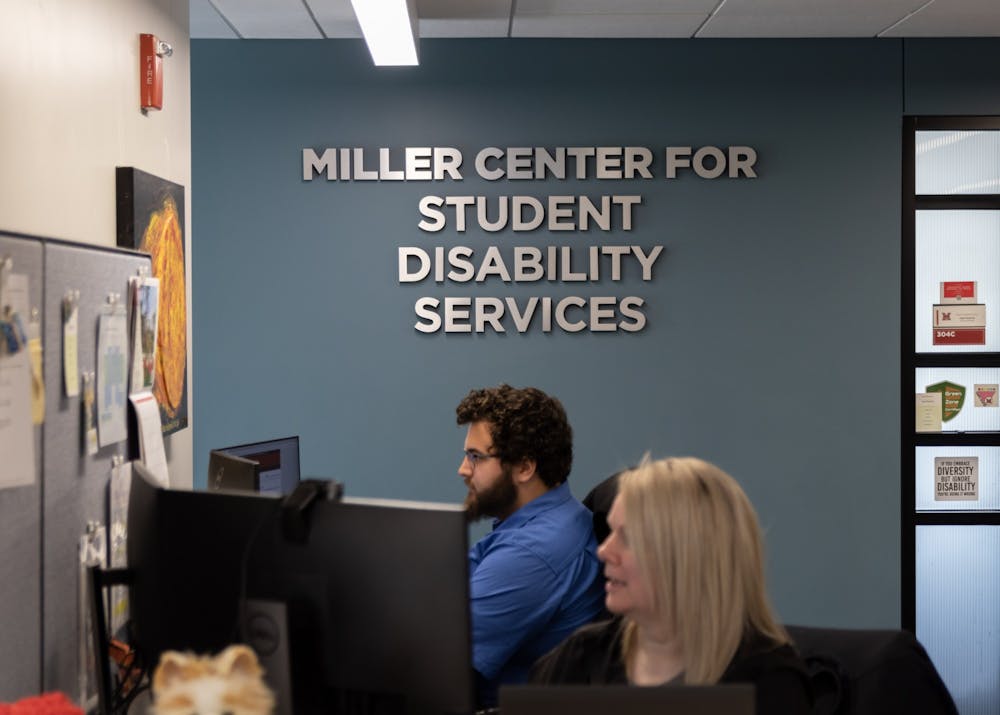I never thought that I would identify as disabled. As a society, we tend to avoid disability and push it off to the side. I’ve heard many say that disability is only for older people and leave it at that.
Disability is a scary thing; it can mean a loss of identity or friends, and as we avoid this difficult topic, we forget that it is the largest minority that anyone can join at any time.
Growing up, I had never understood what it meant to be disabled. I hadn’t yet developed my chronic illness, and my only interaction with the disability community was seeing the "special education" (more accurately labeled as accessible education) classrooms along the hallway of my primary schools.
Although I’m sure I have grown up with more disabled individuals than I realize, their respective differences were hidden away and treated as a shameful secret.
In the last semester of senior year in high school, most students are ecstatic, absolutely thrilled to be free from school and out of their parents' reach. In the final semester of my senior year, I spent most days in various doctors’ offices and sitting in bed, wondering why my entire body hurt.
Like most 18-year-olds, I had no idea where I was going with my life. I had a vague sense of direction and chose my college with what little I knew about myself. After months of questions that kept piling up and answers nowhere to be found, we had a moment of diagnostic success and ran from there.
People’s interactions with disabled individuals are often limited by their preconceived notions. The disability community is vast, including people from every grouping we establish in society. Despite the wide breadth of the disability community, there is an innate connection. Whether it be due to shared hopes, fears, goals, struggles or simply being human, there are always aspects of us to be seen in each other — especially as we work through a society that suppresses so many people.
Seeing my peers struggle with the societal and physical boundaries that govern our lives has driven me into academic areas I have previously avoided. Living a well-rounded life is not despite having a disability; in my case, it is because of it.
Although I can’t confidently make plans well in advance or travel without an array of medication, I’ve met some of the strongest and most compassionate people in my community. These individuals are strong not because they have physical or mental limitations but because they have overcome the societal obstacles put in place to dissuade disabled people from success or even just simply existing in the world.
Becoming disabled can be terrifying, a complete shift of your world, but realizing that my chronic illness is not going to simply disappear has enabled me to see it in a new light.
I have the luxury of not having my disability automatically disclosed; my appearance does not give away any indication that I am chronically ill. With this luxury does come some conflict. A concept that we get hung up on as a society is being “disabled enough.” As humans we tend to compare our struggles to the struggles of our peers, if ours are not as extreme we often deny ourselves the care we deserve.
With accommodations in school, students may see their peers getting extra time, alternative delivery methods, lengthier deadlines and assume that this is setting them ahead.
Enjoy what you're reading?
Signup for our newsletter
Accommodations are not an inherent marker of success; equality is not the same thing as equity. Disabled people deserve equal access to the world.
Although I dread being pitied, being surrounded by individuals that genuinely care about my well-being is the way I was able to accept my situation. The events that have followed me since senior year have tested my relationships and have made me question how to form new connections.
I have come to understand that relationships are only worthwhile when you mutually care about each other. Having friends that understand your needs and will alter plans to accommodate your current needs is necessary. Inclusion and accessibility are kind, but they should also be the standard; being surrounded by those that actively enforce this idea is an incredible feeling.
The world still has a long way to go in terms of genuine disability inclusion. I am unsure if I will always rely on my trusty bottle of Advil and many microwaveable heating packs, but I know that the compassion of those in my life has shown immensely.
Being a kind and inclusive human is unremarkable; what is remarkable is the work of disabled activists who fight their way through a system that actively and innately oppresses them. Although my journey is far from over, taking small steps toward activism and inclusivity can radically change our future.
Sarah Frosch is an out-of-state first-year student majoring in Studio Art with an Art Therapy co-major. She is from the northwest suburbs of Chicago and works as a regular photographer for multiple student publications.
froschse@miamioh.edu




